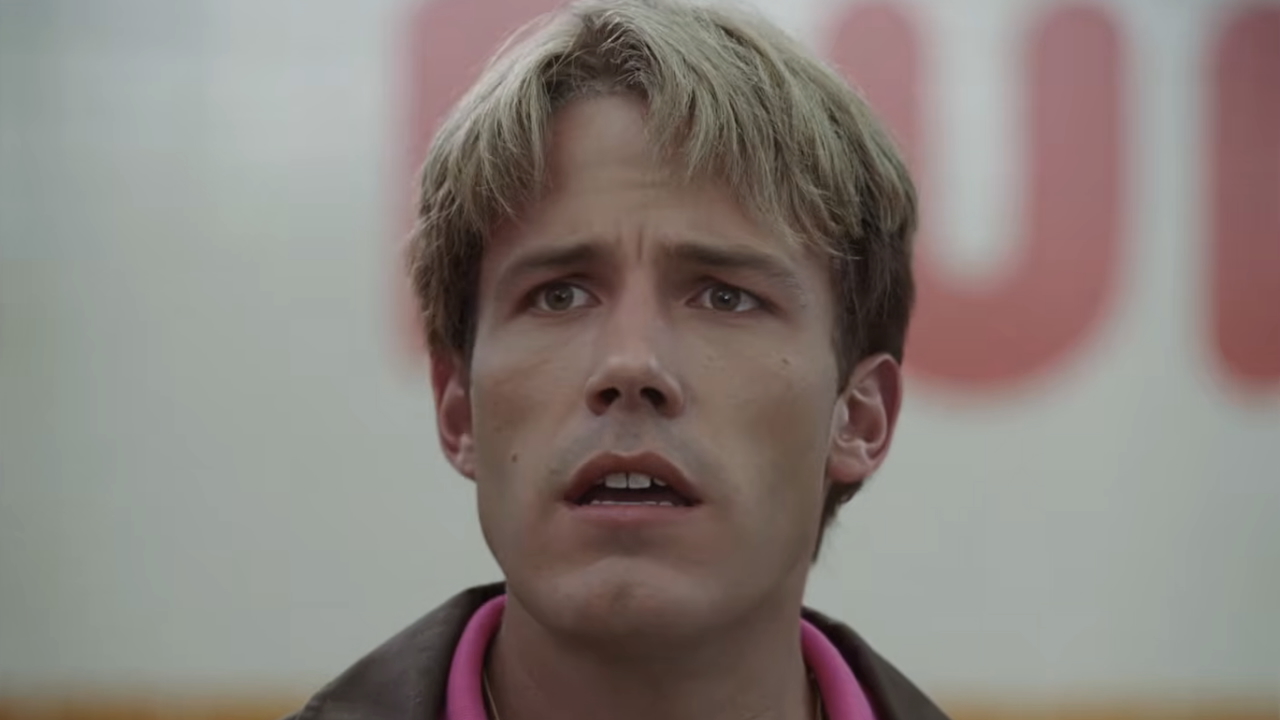4 Cool Movie Genres That Could Learn From Searching
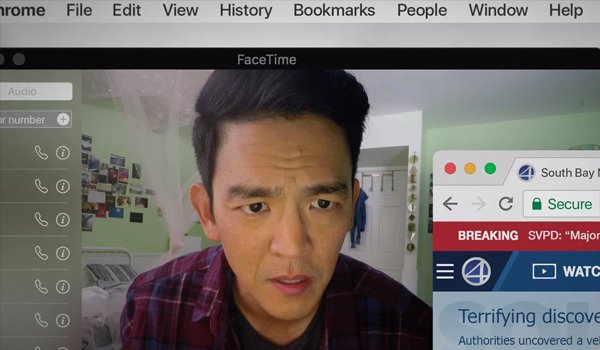
Your Daily Blend of Entertainment News
You are now subscribed
Your newsletter sign-up was successful
Hollywood currently stands on the precipice of widely accepting a new and special form of aesthetic-driven storytelling. It's a similar position the industry found itself in after the release of The Blair Witch Project, only instead of "found footage," now the trend is screen-centric narratives. Also a low budget approach, the idea is that an entire film can unfold on nothing but screens - from laptops, to smartphones, to televisions and more - and it's a cinematography style that has very much evolved from our screen-obsessed general lives. We've already seen a few features execute the method, including the Unfriended movies, Open Windows, and Searching, but right now only the surface is being scratched, and the reality is that there is still a lot of potential here that has yet to be explored.
Specifically, the survival of the style will require both expansion and variety - which is where genre becomes oh-so important. All of the titles mentioned above can be categorized under "Horror/Thriller," and while it's proven effective, the range has to be amplified. The good news is that there rests a lot of possibilities in modern day filmmaking, and while historical fiction and westerns aren't really on the board, there are some other prime opportunities for on-screens stories available.
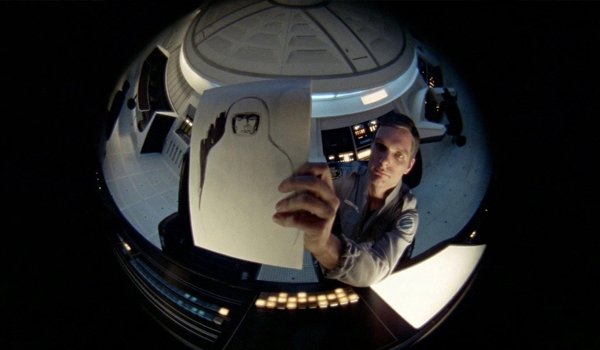
Science-Fiction
Science-fiction may be the genre with the most interesting possibilities featured on this list, because it is the storytelling best situated to allow for some real radical experimentation with the on-screen approach. The reason for this is simply because the storytelling is already so technology-centric - so when new, better and more advanced technology is introduced, there exists the possibility to do more and more with the format without explicitly breaking the "rules."
Searching is a film that has to use laptops and smartphones because they are the pieces of technology available to the film's protagonist, but what if that could be expanded? For example, what if cybernetic eyes were a thing in the world of the story, allowing the film's primary "user" to hack into the livestream of a person's perspective and watch the world through their eyes? Surely the main console of a spaceship could see some cool action play out. And what if screens are actually three dimensional, allowing protagonists to directly interact with icons and dialogue boxes on screen? These might be kind of big steps to take on when on-screens storytelling is still so nascent, but with further development there are some amazing, creative opportunities to be explored.
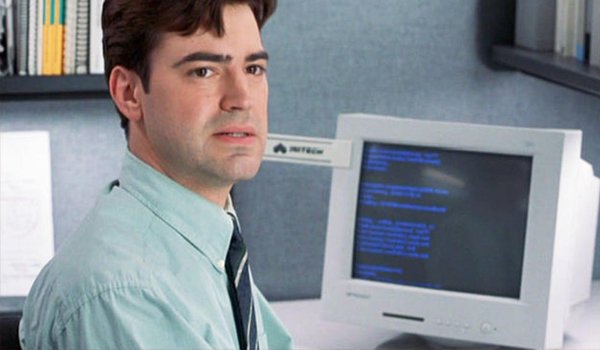
Comedy
Searching, the Unfriended movies, and Open Windows all have the occasional laugh built into the script to relieve some of the tension - but they certainly don't operate as comedies. Their main intention is to scare and thrill, and the on-screens approach provides the tools for them to do that in interesting ways. That being said, the laughs could definitely be there if they were to be aimed for, and it's only a matter of time before someone makes one of these features that hopefully has audiences rolling in the aisles.
Coming from every walk of life there is an endless stream of ridiculous and hilarious things happening online and on social media, but really the key here is the communication aspect. Little more than a high-concept plot is needed (maybe a late night teleconference with employees trying to save a dying business), as the real heavy lifting will be done by casting and finding chemistry between a group of really funny people. If you keep the conflicts coming, the stakes escalating, and the comedic banter flowing, the idea of an on-screens comedy is totally doable.
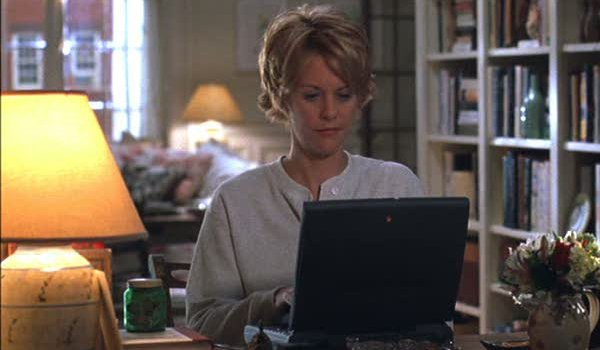
Romance
My primary reasoning for choosing an image from You've Got Mail above was to feature a relationship movie with a character on a computer, but really the film does an excellent job of demonstrating why an on-screens romance could work. Released in 1998, the feature was created as a modern spin on the Ernst Lubitsch classic The Shop Around The Corner - featuring rival protagonists secretly emailing one another instead of sending letters through the mail. Given that computers have only become only more significant in the world of modern day romance, the net evolutionary step could be to see an entire love story play out on screens.
Your Daily Blend of Entertainment News
It would be a minor challenge to adapt the classic romance story into one that plays out entirely across screens - with really the key to the whole thing being a long-distance relationship. The protagonist can start off living a wild single life - regularly active on Tinder - but on social media begin chatting with a friend of a friend, opening their eyes to new possibilities. Despite being miles apart, they grow closer and closer thanks to online video chat sessions, but at the same time experience the strains of the distance, with frustration and jealousy mounting. Thankfully, the whole thing can be resolved with a final, blissful meet-up in person... one that can be streamed live thanks to the funny best friend holding the camera and providing running commentary.
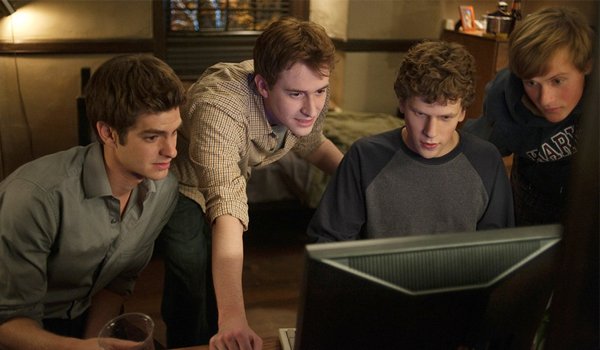
Biopic
To reiterate a point above, on-screens storytelling doesn't really work for certain genres. After all, you can't make a movie that plays out across monitors if none of the characters have access to monitors. As a result, there are certain limitations that would exist when it comes to biopics - but that doesn't mean they are totally off the table. There would probably have to be some liberties taken with the truth, and surely only some stories could be properly told in the format, but there are interesting possibilities all the same.
You probably couldn't tell a person's entire life-story using monitors, as only so much of a life is spent in front them, but the key here could be to focus on specific stories that illustrate a larger life. For example, there's the correspondence between Edward Snowden and journalists Glenn Greenwald, Laura Poitras, and Ewen MacAskill leading to the NSA surveillance controversy. There are also plenty of historical examples of massive coordinated hacks of major establishments, and an on-screens feature could detail how they went down. This is a case where the subject would really have to be an appropriate match for the medium, but in this day and age those kinds of stories are becoming more commonplace.

Eric Eisenberg is the Assistant Managing Editor at CinemaBlend. After graduating Boston University and earning a bachelor’s degree in journalism, he took a part-time job as a staff writer for CinemaBlend, and after six months was offered the opportunity to move to Los Angeles and take on a newly created West Coast Editor position. Over a decade later, he's continuing to advance his interests and expertise. In addition to conducting filmmaker interviews and contributing to the news and feature content of the site, Eric also oversees the Movie Reviews section, writes the the weekend box office report (published Sundays), and is the site's resident Stephen King expert. He has two King-related columns.
